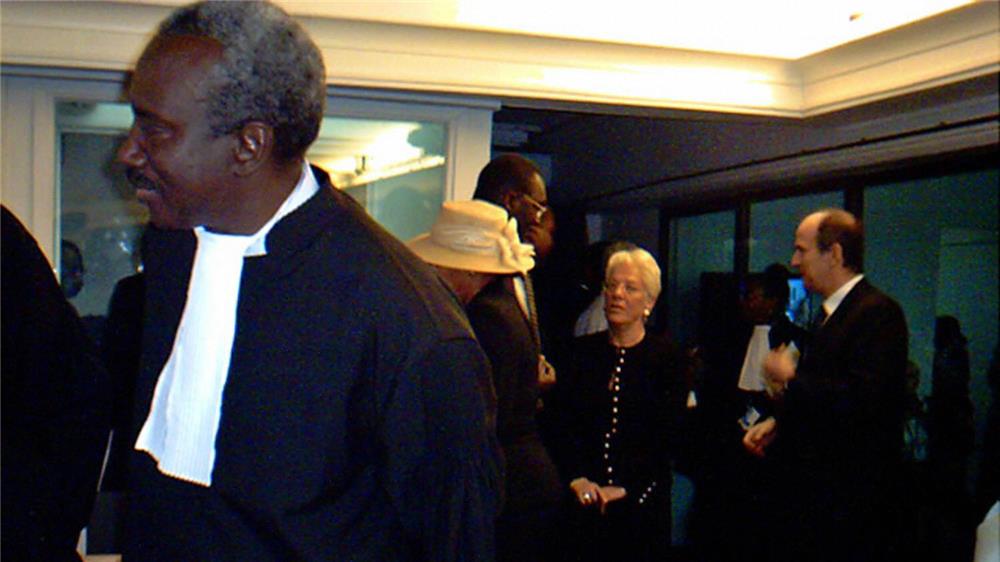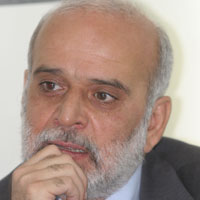تتحقق مصلحة المجتمع بقيام الصحفيين ووسائل الإعلام بأدوارهم عبر ثلاثة أسس رئيسية هي:
1- مهنية جيدة للصحفيين والإعلاميين.
2- بيئة تشريعية تضمن الحريات الإعلامية. (يعرف فيها الإعلامي حقوقه وواجباته، والمباح والمعاقب عليه).
3- الالتزام بأخلاقيات المهنة.
وقد تؤدي حرية التعبير وحرية الصحافة "إلى قيام حالة من التنازع أو التزاحم مع حقوق أخرى كحق الخصوصية" (1). ولكن عند تعارض مصلحتين هناك حق أجدر بالرعاية. وتقول محكمة النقض المصرية في هذا الخصوص إنه عند تصارع مصلحتين فالقانون "يوازن بين حقين؛ يهدر أحدهما صيانة للآخر" (2). كما كانت المحكمة الأوروبية لحقوق الإنسان توازن بين مبدأين متصارعين في المرحلة الأولى، ثم انتقلت إلى أن تقييد حرية التعبير يجب أن يكون في أضيق التفسيرات(3).
وتعتبر الثقافة القانونية مهمة للمواطنين بشكل عام، وللعاملين في الحقل العام وخاصة الصحفيين والإعلاميين، ذلك لأن "الجهل بالقانون لا يعتبر عذرا لمن يرتكب أي جرم" (4).
إن الثقافة القانونية مهمة للصحفي والإعلامي لأنها تعرفه بحقوقه، فيستطيع ممارستها إلى الحد الأقصى، وعدم تجاوز حقه، والتعدي على حقوق الآخرين، وتساعده في توجيه أسئلة دقيقة. كما أنه في ظل ضغط العمل والحاجة إلى اتخاذ قرارات سريعة من الصعوبة استشارة القانونيين في كل صغيرة وكبيرة وفي أي وقت. وتساعده على إبداء رأي، وبعد كل ذلك فإن معرفة حقوقه هي أول وسائل دفاعه إذا تم اتهامه وتحويله للقضاء.
وتشترط القوانين العقابية العربية وغيرها العلانية (Publicity) لتجريم الأفعال المعاقَب عليها.
وتعدد المادة 6 من قانون العقوبات القطري رقم 11 لسنة 2004 طرق العلانية كالتالي:
"في تطبيق أحكام هذا القانون، يُقصد بطرق العلانية، ما يلي: 1 -القول أو الصياح الذي يحصُل الجهر به، أو ترديده مباشرة، أو عن طريق إحدى الوسائل الآلية، أو إذا أُذيع بوسيلة أخرى، في جمع عام أو مكان عام. 2 -الأفعال أو الإشارات أو الحركات إذا وقعت في مكان مما نص عليه في البند (1) من هذه المادة، أو كان يستطيع رؤيتَها من كان فيه، أو نُقلت إليه بأي وسيلة. 3 -الكتابة أو الرسوم أو الصور أو الأفلام أو أشرطة التسجيل أو الرموز أو غيرها من طرق التعبير، إذا عُرضت أو كان يستطيع رؤيتَها أو سمَاعها من كان في مكان مما نص عليه في البند (1) من هذه المادة، أو وُزعت بغير تمييز على الناس أو بيعت أو عُرضت للبيع".
حقوق وواجبات الصحفيين
إن الثقافة القانونية للصحفيين تمكنهم من المطالبة بحقوقهم وأولها حق الحصول على المعلومات وحماية مصادر معلوماتهم.
كما أن الثقافة القانوني تجعلهم قادرين على التمييز بين التشهير والنقد المباح.
وتعتبر جرائم التشهير (الذم والقدح أو السب والقذف) من أكثر الجرائم المرتكبة في العمل الصحفي. وبشكل عام لا تجيز التشريعات العربية إثبات صحة إسنادات (الذم والقدح أو السب والقذف)، إلا أن يكون ما عزاه متعلقا بواجبات الموظف أو يكون جريمة تستلزم العقاب قانونا. ثم جرى توسيع النقد المباح ليشمل:
1- أعمال الموظف العام أو من في حكمه.
2- ذا صفة نيابية.
3- شخصية عامة.
وصدرت أحكام قضائية عديدة بأن"تناول الحياة الخاصة للموظف العام مباح بقدر ما يكون مرتبطا بأعمال الوظيفة العامة، بمعنى أنه يشترط أن يكون بين الأمور العامة والخاصة ارتباطا لا يقبل التجزئة ".
ويشترط دائماً حسن النية عند الصحفي، بمعنى أن يتوافر فى الناقد أمران:-
1- توخي النفع العام فيما يبديه من آراء.
2- اعتقاده بصحة ما يبديه من آراء.
وانتهج القضاء في تفسيره للمقالات بالأسلوب المجمل للمقال دون الوقوف على جزيئاته، فالمقال كل لا يتجزأ في منظور القضاء ولا يجوز تفسير سوء نية الناقد بالاستناد إلى بعض الجمل دون كل المقال فالمقال يفسر في مجمله.
وحدد القضاء الأسس القانونية الواجب مراعاتها عند ممارسة حق النقد وهي:
1- النقد يحقق مصلحة عامة عندما يتناول تقييم وضع أو عمل معين ببيان محاسنه ومساوئه، كما يسلط الضوء على واقعة معينة يستطيع جمهور الناس من خلال التعليق عليها فهمها وإدراك حقيقتها وهذه المصلحة الاجتماعية تربو على مصلحة من قد يناله أو يمسه النقد.
2- أن يتناول واقعة تعني وتهم المجتمع وأفراده إذ لا يستفيد المجتمع من تناول الحياة الخاصة للأشخاص. يدخل في نطاق تقييم الأعمال العامة التي يقوم بها بعض الأفراد أصحاب المهن الحرة كالعلماء والأدباء والفنانين والشعراء.
3- حسن النية: ليس إشفاء لضغائن.
4- أن يلتزم الناقد حدود إبداء الرأي في الأمر موضوع النقد بما يحقق إطلاع جمهور الناس على وجهة نظره فيه. فإذا تجاوز ذلك وخرج عن النقد النزيه إلى التشهير والتجريح فإنه لا يستفيد من تلك الإباحة.
5- استعمال عبارات ملائمة للواقعة المراد التعليق عليها أو نقدها. ضابط ملاءمة العبارة للواقعة المطلوب عرضها هو ثبوت ضرورتها.
من أهم المعايير الدولية التي توازن بين متى تبدأ حرية التعبير ومتى يجب أن تتوقف، ما جاء في العهد الدولي للحقوق المدنية والسياسية.
وتنص المادة 19 من العهد على أنه لكل انسان الحق في حرية التعبير. ويشمل هذا الحق حريته في التماس مختلف ضروب المعلومات والأفكار وتلقيها ونقلها إلى الآخرين دونما اعتبار للحدود، سواء على شكل مكتوب أو مطبوع أو في قالب فني أو بأية وسيلة أخرى يختارها. وتستتبع ممارسة الحقوق السابقة واجبات ومسؤوليات خاصة. وعلى ذلك يجوز إخضاعها لبعض القيود ولكن شريطة أن تكون محددة بنص القانون وأن تكون ضرورية لاحترام حقوق الاخرين أو سمعتهم، ولحماية الأمن القومي أو النظام العام أو الصحة العامة أو الآداب العامة.
كما يجب ان لا ننسى المادة 20 التي توجب أن تُحظر بالقانون أية دعوة إلى الكراهية القومية أو العنصرية أو الدينية التي تشكل تحريضا على التمييز أو العداوة أو العنف (5).
وهكذا يتضح أن حرية التعبير ليست مطلقة وأن هناك "واجبات ومسؤوليات خاصة" على بني البشر تجاه الآخرين وعلى ذلك يجوز فرض تقييدات على حرية التعبير بشرط إخضاعها لما يُعرف بالفحص الثلاثي الأجزاء Three part test المستخلص من نص المادة 19 من العهد والشبيهة إلى حد بعيد بنص المادة العاشرة من الاتفاقية الأوروبية لحقوق الإنسان. وكانت المحكمة الأوروبية لحقوق الإنسان توازن بين مبدأين متنافسين في المرحلة الأولى؛ حرية التعبير مقابل الخصوصية، ثم انتقلت إلى ان تقييد حرية التعبير يجب أن يكون ضمن أضيق التفسيرات Narrowly construed.
وفيما يخص الموظف العام هناك اتجاهان في هذا الخصوص:
1- الموظف العام يستطيع المقاضاة بصفته الشخصية.
2- الموظف العام يعرف أنه يخضع لتدقيق عميق على أعماله Deep scrutiny، ويجب أن يظهر قدرا أعلى من التسامح.
ففي بريطانيا مثلا لا تقبل دعوى التشهير من الحكومة المركزية أو الإدارات المنتخبة محليا أو الأحزاب أو اتحادات العمال، لأن ذلك يضع قيدا غير مرغوب به على حرية التعبير. الذي يستطيع المقاضاة الشركات corporate bodies.
نطاق تطبيق القوانين العقابية
وتطبق قوانين العقوبات الوطنية على النحو التالي:
1- مبدأ الاختصاص الإقليمي: كل شخص يتواجد على إقليم الدولة سواء أكان وطنيا أو أجنبيا.
2- الشخصي: ملاحقة الوطني في الخارج جانياً أو مجنياً عليه.
3- الدولي: ملاحقة الجاني الأجنبي في الخارج في جرائم معينة.
هل يمكن أن يرتكب الصحفي جريمة ذات طابع جنائي دولي؟
الجواب: نعم. يمكن أن يرتكب الصحفي جريمة يُحاسب عليها دولياً. وهذه ثلاثة أمثلة على ذلك.
المحكمة الجنائية الدولية الخاصة بلبنان، حاكمت في لاهاي بهولندا الصحافية كرمى الخياط، نائبة مدير الأخبار ومديرة البرامج السياسيّة في تلفزيون الجديد، لنشرها معلومات عن شهود سريين مزعومين وامتناعهما عن سحب التقارير المنشورة على موقع التلفزيون الإلكتروني على الرغم من قرار المحكمة.
وهناك قرارات للمحكمة الجنائية الدولية الخاصة برواندا، والمحكمة الجنائية الخاصة بيوغسلافيا سابقا توضح معنى ذلك. وكانت المحكمة الجنائية الخاصة برواندا التي كانت عضوا فيها القاضية الأردنية تغريد حكمت قد حاكمت صحفيين من راديو RTLM بتهمة التحريض على قتل التوتسي في أيلول 1993.
وفي قضية المدعي العام ضد إذاعة RTLM، خلصت المحكمة الجنائية الدولية لرواندا (6) إلى أن "الكثير من المسؤولية عن الإبادة الجماعية في رواندا يمكن إلقاء اللوم فيه على وسائل الإعلام. وقد سمع كثير من الناس عن إذاعة "دي ميل كولينس" التي بدأت ببث قوي وثابت من العنصرية، وضد التوتسي في سبتمبر/أيلول 1993 ".
وكانت الملاحقة الجنائية وإدانة الصحفيين من راديو RTLM ذات أهمية كبيرة. وهو ينص على مبدأ مساءلة الصحفيين عن عواقب ما يبثونه.

وبعد أن حطت الحرب العالمية الثانية أوزارها وأقيمت محاكمات نورمبيرغ جرى إعدام عشرة مسؤولين عسكريين من ألمانيا منهم مدني واحد وهو الصحفي "يوليوس ستيرشر" وذلك في 16 أكتوبر/تشرين أول 1946، في سابقة تاريخية يجب أن تحظى باهتمام كبير للصحفيين.
وقد أُدين ستيرشر بكونه رئيس تحرير صحيفة "دير ستورمر"، على حد قول الحكم، بجرائم "التحريض على القتل والإبادة في الوقت الذي يقتل فيه اليهود في الشرق في ظل أشد الظروف الرهيبة تشكل بوضوح (جريمة).. جريمة ضد الإنسانية."
عرض القضية ضد ستريشر، المدعي العام البريطاني المقدم م. وقال جريفيث جونز: "قد يكون هذا المتهم هو الأقل تورطاً بشكل مباشر في ارتكاب جرائم جسدية ضد اليهود، لكنه قاد الدعاية وتعليم الشعب الألماني بهذه الطرق ".
ومن المعروف تاريخيا أن التحريض على الكراهية القائم على التمييز بأنواعه قد يكون مقدمة لتبرير العنف ضد فئة معينة من السكان وقد يشكل جريمة ضد الإنسانية التي أصبحت تخضع للمحاكمة لدى المحكمة الجنائية الدولية إذا فشلت الدولة في محاكمة مرتكبيها أو تحايلت لتبرئتهم.
وعلى ضوء ذلك أقترح على كل صحفي بل وعلى كل مواطن أن ينسخ أو يكتب أو يحفط عبارة "لا يعد الجهل بالقانون عذرا لمن يرتكب أي جرم".
هوامش
(1) د. محمد يوسف علوان ود. محمد الموسى، القانون الدولي لحقوق الإنسان، دار الثقافة، جـ 2 ص 285.
(2) ناصر امين، نظام القضاء المصري، مؤسسة أمين للمحاماة 2004 ص 74.
(3) Tom Welsh & Walter Greenwood, Essential Law for Journalists, Butterworth 2001 p 183
(4) المادة 85 من قانون العقوبات الأردني رقم 16 لسنة 1960، المادة 34 من قانون العقوبات القطري رقم 11 لسنة 2004 التي تنص: "لا يُعد الجهل بالقانون عذراً. ولا يُعد الجهل بالنص المنشئ للجريمة، أو التفسير الخاطئ له، مانعاً من توفر القصد الجنائي"، والمادة 42 من قانون الجزاء الكويتي (نفس رقم وسنة القانون الأردني ويا للصدفة) التي تنص: "لا يعد الجهل بالنص المنشئ للجريمة، ولا التفسير الخاطئ لهذا النص، مانعا من توافر القصد الجنائي، إلا إذا قضى القانون بخلاف ذلك".
(5) تنص المادة 20 من العهد الدولي الخاص بالحقوق المدنية والسياسية:
1 تحظر بالقانون أية دعاية للحرب.
2 تحظر بالقانون أية دعوة إلى الكراهية القومية أو العنصرية أو الدينية تشكل تحريضا على التمييز أو العداوة أو العنف.
(6) “Much of the responsibility for the genocide in Rwanda can be blamed on the media. Many people have heard of Radio des Mille Collines, which began broadcasting a steady stream of racist, anti-Tutsi invective in September 1993”.
The criminal prosecution and conviction of the RTLM journalists was immensely important. It establishes the principle of the accountability of journalists for the consequences of what they broadcast








































